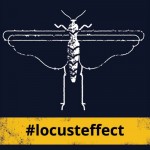Most people don’t live under the shelter of the law, but far from the law’s protection.
– United Nations
About seven years ago, I first learned about the horrors of human trafficking one Sunday at Ecclesia Hollywood.
Nearly 30 million people are currently enslaved.
About six years ago, I first read International Justice Mission President Gary Haugen’s book Good News About Injustice, and learned of the phenomenal work his organization is doing to combat modern day slavery and systemic oppression.
4 billion people are unprotected by the law … in
fear of everyday violence like rape, forced labor, and police abuse.
About five years ago, I first interned with Oasis USA, another anti-trafficking organization, and got even more educated about the issues, even more exposed to the brutality of bonded labor and sex trafficking.
For women ages 15-44, the odds of experiencing physical harm or death due to gender-based violence is greater than cancer, motor accidents, war, and malaria combined.
About four years ago, I moved to DC to work at Sojourners, an poverty-focused advocacy organization; I immersed myself in issues of justice and poverty, including systemic injustice and trafficking, and along the way, made a lot of friends who work(ed) at IJM.
Metro Cebu in the Philippines saw a 79% reduction in the availability of children for commercial sex after 4 years of IJM and local law enforcement partnering together.
Every year, I’ve learned something new, either about the brutal realities of injustice that plague people all over the world or about the tremendous work that is going on every day to bring light into dark places.
Gary Haugen’s new book, The Locust Effect: Why the End of Poverty Requires the End of Violence, is out today, and it’s a good one, delving deeper than just quick fixes or band-aids, and challenging us both with the reality of how interconnected poverty and violence are and with the opportunity to change things for the better not just on an individual level but on the systemic level.
My old boss Jim Wallis likes to use the analogy of rescuing babies from a river. If you keep seeing babies floating down the river and you keep jumping in to save them, at some point you need to head upstream and stop whoever’s throwing them in!
This is the work of justice: not just rescuing those who are currently living under threat of poverty and the violence that accompanies it but also making sure that others never have to experience that life.
So what can we do? Awareness is the first step; action is the necessary second. Donors and development institutions can help by supporting the work of building professional and accountable police, and modern, functioning prosecutors, courts, and child welfare agencies.
- Awareness – Buy the book. Read it. Encourage others to understand the problem by doing the same. Check out the website.
- Spread the word – Tell your mom, your professor, and your barista. The global conversation needs your voice.
- Tell world leaders – Ask the world’s leaders to make this a priority. Start by signing the petition to the UN.
- Donate – Give to help stop violence by donating to IJM’s life-changing work.
In short, I highly recommend Gary’s book and I strongly encourage you to go buy it.
 BONUS: If you buy your copy of The Locust Effect THIS WEEK, a generous friend of International Justice Mission will give $20 to IJM for every copy sold to help fight violence against the poor. What’s more, all the proceeds of the book’s sales will go toward the same cause.
BONUS: If you buy your copy of The Locust Effect THIS WEEK, a generous friend of International Justice Mission will give $20 to IJM for every copy sold to help fight violence against the poor. What’s more, all the proceeds of the book’s sales will go toward the same cause.
Get educated. Get the book. Get involved.